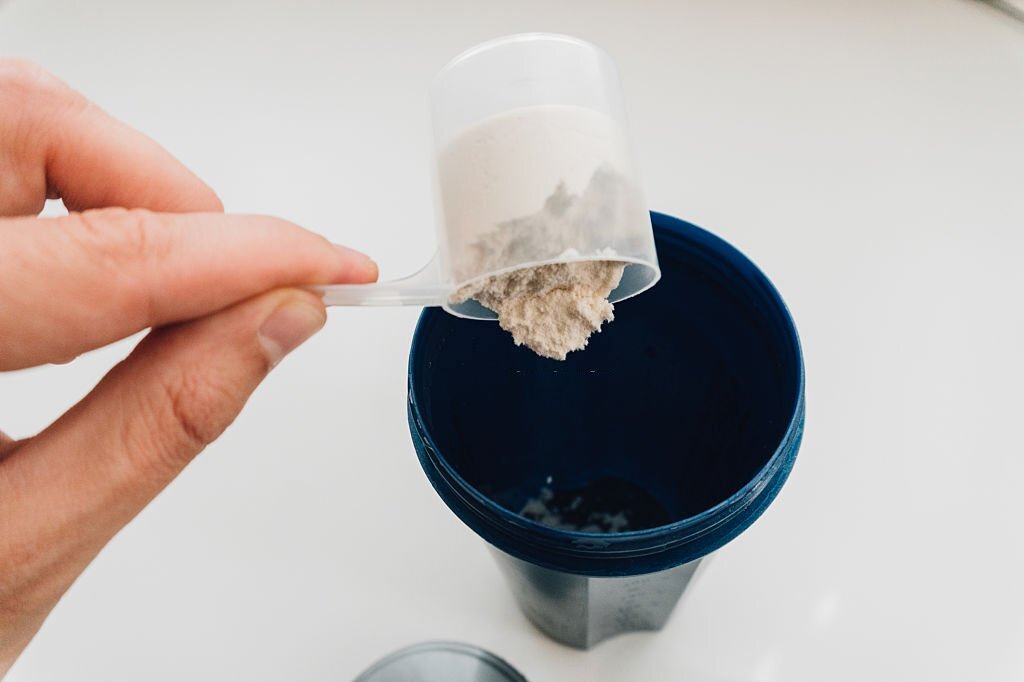Are you ready to step up your fitness game? Creatine might be the perfect supplement to increase strength and muscle mass. This powerful supplement has been shown to help increase muscle mass, boost strength, and enhance overall performance in the gym.
But are there any guidelines for creatine for beginners? Will it benefit them or risk their fitness?
Here, we’ll explore the ins and outs of creatine, so you can unlock explosive gains and crush your workout goals from the beginning.
Creatine For Beginners: A Proper Guide To Energy Booster
Creatine is a preferred choice of fitness enthusiasts for being a safe and effective aide. But you can get the maximum results only if you know the correct way of taking creatine. And as a beginner, a proper guideline is a must.
So, here are a few things to keep in mind while starting creatine.
Type of creatine
There are multiple types of creatine supplements on the market, but the most extensively researched and widely used type is creatine monohydrate. It is also the most affordable option available.
Alternative forms of creatine, such as ethyl ester and creatine hydrochloride, have not been proven more effective than creatine monohydrate.
Further, certain creatine supplements may contain additional ingredients like sugars or caffeine. When selecting a product, choose those that only include creatine and minimal additives.
Dosage
The general dosage of creatine is 3 to 5 grams per day. But, as a beginner, you also must know about the loading and maintenance period – the two necessary parts of creatine dosage.
The loading period involves taking 20 grams of creatine for 5 to 7 days. After that, you have a maintenance period of 3 to 5 grams of creatine daily. It will give you the most effective result of creatine concentration in your muscle.
You can skip the loading phase and take the regular dose for 28 days to achieve the same result.
Remember, taking higher dosages may lead to side effects, such as stomach upset and diarrhea. So, when determining your tolerance, starting with a low dosage and gradually increasing it over time is best.
Timing
Taking creatine after a workout may be more beneficial since muscle cells are more sensitive to creatine now. Also, taking creatine before a workout can help improve energy levels and enhance overall performance.
You can also take creatine at night; don’t mix it with caffeine, as it may cause sleeping issues.
Hydration
Creatine can cause the body to retain water, leading to dehydration if you do not drink enough fluids. So, drink plenty of water with creatine to prevent dehydration.

10 Reasons To Take Creatine As Beginners
Here are 10 reasons why beginners may want to consider taking creatine.
Improve Athletic Performance
Creatine is best known for improving athletic performance, particularly during high-intensity, short-duration activities like weightlifting, sprinting, and jumping.
Creatine increases the amount of phosphocreatine in your muscles, which helps produce more ATP, the primary energy source for muscle contractions. Thus, creatine can help you lift weights, perform more reps, and sustain high-intensity activity for longer periods.
Increase Muscle Mass
Creatine can also help build muscle mass, especially with a proper diet and exercise program.
By increasing your strength and power output, creatine allows you to lift heavier weights and perform more challenging exercises, which may stimulate muscle growth. Further, creatine increases the water content of muscle cells, which may make them look fuller and more voluminous.
Faster Muscle Recovery
Creatine helps reduce muscle damage and inflammation after intense exercise, which may lead to faster recovery times. By helping your muscles recover more quickly, creatine may allow you to train more frequently and with greater intensity, leading to better results.
Enhance Brain Function
While most people associate creatine with physical performance, it can also benefit cognitive function. Creatine supplementation may improve healthy adults’ memory, attention, and processing speed.
Reduce Fatigue
Creatine can help reduce fatigue and tiredness, particularly during high-intensity exercise. By helping your body produce more energy, creatine can allow you to push harder and longer during workouts, leading to better results.
Increase Bone Density
Creatine supplementation may increase bone density, reducing the risk of osteoporosis and other bone-related conditions.
Improve Glucose Metabolism
Creatine supplementation may also benefit glucose metabolism, particularly in people with type 2 diabetes. Some studies have shown that creatine can improve insulin sensitivity and glucose uptake, which may help regulate blood sugar levels and reduce the risk of diabetes-related complications.
Better Hydration
Creatine has been shown to increase the water content of muscle cells, which can improve overall hydration levels in the body.
Versatile
You can take creatine in various forms, such as powder or capsules, and easily add it to your pre- or post-workout routine. As it has an unnoticeable taste, you can mix it with foods like juice, energy drink, or tea. You can also mix creatine with overnight oats.
Safe and Well-Tolerated
Creatine is generally considered safe and well-tolerated, with few side effects when used as directed. However, don’t forget to speak with a healthcare professional before starting any supplement regimen, as individual needs and responses may vary.

Who Should Not Take Creatine?
While creatine is generally considered safe and well-tolerated by most people, some individuals may need to exercise caution or avoid taking creatine altogether.
Here are some groups of people who should not take creatine.
With kidney disease
The kidneys process creatine, and excess creatine can put additional strain on the kidneys. However, some studies also indicate that creatine supplementation is not linked to kidney damage. So, individuals with pre-existing kidney disease should consult with a medical professional to determine the safety of creatine supplementation.
Under the age of 18
It is recommended that individuals under the age of 18 avoid taking creatine supplements. The potential risks associated with creatine supplementation in young people are not yet fully comprehended, as their bodies are still in the developmental stage.
Moreover, their bodies naturally produce creatine, and they may not engage in high-intensity physical activity that would necessitate supplementation.
History of liver disease
Creatine is metabolized in the liver, and taking large doses of creatine supplements may affect the liver. If you have a history of liver disease, avoid taking creatine supplements.
Sensitivities to creatine
Creatine may cause adverse allergic reactions in some individuals, such as rash, hives, and itching. So, you should avoid taking creatine supplements if you have allergies or sensitivities.
Individuals taking certain medications
Creatine can interact with certain medications, such as nonsteroidal anti-inflammatory drugs (NSAIDs), causing side effects such as kidney damage. So, if you take any medications, consult your healthcare provider or dietitian before taking creatine supplements.
Should You Start Taking Creatine?
To determine if taking creatine is appropriate for you, it’s essential to consider your fitness objectives and seek advice from a professional dietitian.
Using creatine may offer advantages for those who engage in regular high-intensity workouts or resistance training and maintain good overall health. However, creatine is not a miracle cure and should be combined with a wholesome diet and exercise routine for optimal results.

Final Thoughts
Looking to take your athletic performance to the next level with the mighty supplement creatine? Then here’s the guide to creatine for beginners about the types, dosage, and time.
But before diving in, chat with your doctor to determine if creatine suits you. Always stick to proper dosages and keep that water bottle handy. With creatine in your corner, you’ll be crushing your fitness goals in no time.
For more information on creatine, check out our blogs.

I started my professional career as a sports medicine consultant in Rola, Missouri. My primary role was to suggest suitable supplements for my patients according to their pre-existing conditions and lifestyle goals. I believe a healthy lifestyle is the most important if you want to make your life really meaningfull.


